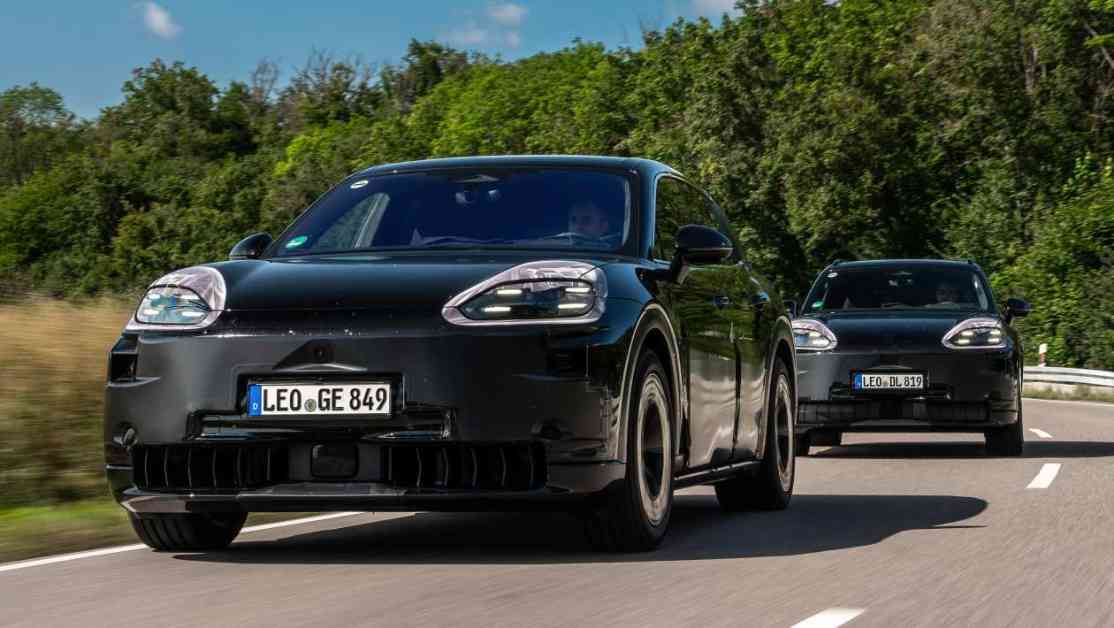Porsche recently made an announcement that they will continue to sell their combustion-powered Cayenne models even after the introduction of the all-new all-electric fourth generation Porsche Cayenne SUV in 2025. This decision marks a change from their previous plan to discontinue the smaller combustion-powered Macan once the all-electric version was released. It indicates the uncertainty Porsche is facing as the push towards electric vehicles slows down.
CEO Oliver Bloom stated that the third generation Cayenne will be updated and sold alongside the new all-electric model until at least 2030. This will result in a lineup of three models, including the existing ICE SUV and Coupe versions, along with the upcoming all-electric model.
The fourth generation Cayenne is currently in development and will be based on the PPE platform, exclusively designed for electric vehicles. While this platform is advanced in terms of electrification, it is not capable of accommodating combustion engines, leading to the continued use of the current petrol and plug-in hybrid Cayenne models built on the VW Group’s MLB-Evo platform.
The current Cayenne, introduced in 2017 and updated recently with new interior features and engine enhancements, will have a lifespan of at least 13 years by 2030 as there is no new ICE-compatible platform in development. Despite this strategic shift for Porsche, the brand is still dedicated to electrification, with plans to potentially offer over 80% of their new cars as fully electrified by 2030, depending on customer demand and global trends in electromobility.
While Porsche’s move to retain combustion-powered models alongside electric vehicles may seem surprising, it reflects the industry-wide trend of hesitancy towards all-electric vehicles. The softening enthusiasm for EVs has prompted many automakers, including Porsche, to reassess their strategies and ensure they cater to a diverse range of customer preferences and market conditions.
In conclusion, Porsche’s decision to continue selling combustion-powered Cayenne models alongside the new all-electric version highlights the complexities of the transitioning automotive landscape. It underscores the importance of flexibility and adaptability in responding to changing consumer demands and technological advancements within the industry. As Porsche navigates this shifting terrain, their commitment to electrification remains steadfast, setting the stage for a dynamic and innovative future in the realm of luxury SUVs.










